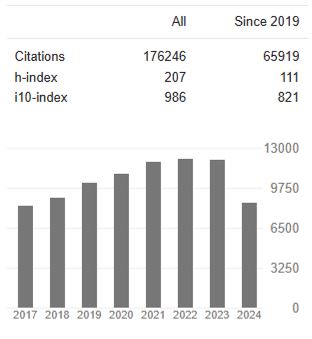Pattern of Psychiatric Morbidity and Substance Abuse among Iraqi Prisoners
Abstract
Shalan Joodah Rhemah Al-Abbudi, MushtaqTalibHashi
Objective: Mental disorders and substance abuse are one of the most frequent disorders in the world. Mental health of prisoner’s is a major issue of public health.
Methods: This is a cross-sectional study carried at 3 prisons in Baghdad. All prisoners, both awaiting trial and sentenced prisoners, both gender were included, using stratified random sampling technique. Basic sociodemographic variables were collected using aninformation list filled during interview. Prisoners’ mental state was checked by self-reporting questionnaires scale (SRQ-20). Positive SRQ-20 test prisoners were selected for administration of the DSM-IV Structured Interview (SCID) by consultant psychiatrist.
Results: A total of 1447 prisoners were approached; 70% responded; Mean age 33.9±7.17 years. About 50% of prisoners stay in prison between 5-10 years. The prevalence of psychiatric morbidity (positive SRQ-20 responses) was 749 (73.9%). Generalized anxiety disorder was 7.2% of psychiatric morbidity, obsessive compulsive disorder 1.5%, panic disorder 4.8%, substance abuse 50.1%, depression 11.9%, psychosis 9.2%, schizophrenia 3.2%, posttraumatic stress disorder 1.6%, and personality disorder 10.5%.
Conclusion: this study shows high psychiatric morbidity and substance abuse among Iraqi prisoners that require furtherattention to enhance mental health and concentrated on the role of mental health workers for early detection and proper treatment of psychiatric disorders in prison.




